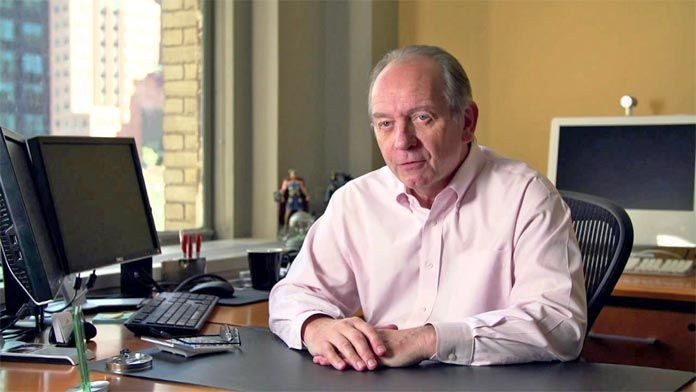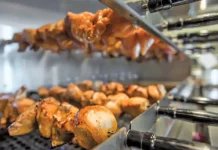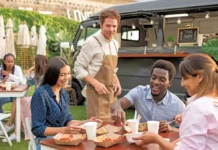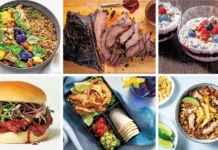
[pro_ad_display_adzone id=”9252″]
The questions?? Where are we in the food and beverage industry going? How does the economy look and will we be going into another recession? What types of financing and capital will we have access to? What trends are going to be important as we move towards 2017 and what does it all mean for my business?
These were the types of questions circulating around the room filled with over 100 C suite executives from throughout the food and beverage world mingling with senior level bankers, investors and accountants gathered in New York City.
The event was the annual WeiserMazars, CFO Boot Camp. The conference was a full day of in depth discussions and presentations on key topics of importance to all members of the food and beverage community. Attendees included manufacturers, wholesalers and distributors, as well as food markets, hotel and restaurant companies. The Boot Camp is the brainchild of Lou Biscotti, the National Director of WeiserMazars Food & Beverage practice, as a place to exchange ideas and build meaningful professional relationships through information and cooperation.
Disruption driven by consumer patterns was at the heart of the conference. Change is in the air but the overall state of the industry is very positive with annual increases in revenues and general growth reported across the board. Shifts in buying habits was illustrated by a growing trend for food retail outlets like supermarkets to behave more like restaurants and many restaurants behaving more like retail stores. Online challenge to food stores grew as companies like FreshDirect, Amazon and other delivery services spawned by livery companies like Uber and Lyft made the need to go to the store less necessary. Supermarket consolidations are happening as a result and many are moving directionally to smaller footprints with more focus on fresh and healthy foods along with in-house chef prepared meals.
Price sensitivity has brought about the next generation of Whole Foods which, opened its first “365” market in Los Angeles. They plan on keeping the prices down by building smaller boxes and having a smaller product mix. The focus is on the fresh food side of the business and virtually eliminating much of the “center aisles”.
At the heart of any F&B business model is financing and the ability to get it. Without access to capital the needle doesn’t move for anyone. The finance panel consisted of senior commercial bankers from Capital One, TD Bank and Investors Bank of New Jersey. The unanimous position was that all these banks loved the food and beverage industry and that money was available for “A and B+” customers seeking $5MM to $500MM. There were all kinds of structures for the financing available, but not every bank was right for every customer. All agreed that the margins for banks were very tight and they were in a highly competitive environment and as a result couldn’t finance all ends of the spectrum, even if they wanted to. One banker said that commercial banks were simply not built for more entrepreneurial “Mom and Pop” businesses and that considering a loan for under $500,000 was simply not profitable for banks. He felt smaller businesses needed to consider other options including community banks and SBA lenders which are better suited even though they had their limits. One banker recommended considering small business alternative lenders like Strategic Funding (a sponsor for the conference) because of the range of financing available, speed to fund and easier credit scoring. The cost was higher, but was offset by other advantages.
The Investors Panel reported on hot areas of interest and targets for the investment community. Many of the larger food and beverage companies we see today started as small family owned businesses making them of prime interest. In the opening remarks, it was projected that 33% of all family owned F&B businesses will transition in some way in the next 3 years. Some with succession plans to the next generation, or taking on investors, merging or selling. Opportunities for family owned F&B businesses depends on planning, maintaining good business practices, sound professional accounting and a realistic sense of the value of their business.
One member of the panel, Andy Unanue, the Managing Partner of AUA Private Equity Partners is also a member of the Goya Foods family. He now focuses on the acquisition of family run Latin food businesses, which he believes offers strong growth opportunities. Because many of them are not prepared for transactions, it often takes his group up to 2 – 2.5 years to complete a deal with an attractive business. The expert panel advised anyone seeking to take on a major investor, merge their business or sell, to be very diligent in building great records and sound corporate governance, even if they were relatively small as it would make a big difference in dealing with the investment world.
As part of the Investor Panel, Hannah Chanoine, a litigator with the law firm of O’Melveny & Meyers, discussed some of the legal issues and risk factors that should be considered by F&B business owners and investors before getting too deeply into a potential transaction. Companies preparing for a transaction have to be aware of an increasing rate of class action lawsuits against the industry for false advertising. Items considered trivial to the business can wreak havoc if you are working with investors or banks. She highlighted numerous lawsuits filed recently including one against Subway for the “Foot Long” sandwich, which was not exactly 12 inches long. “All businesses and investors need to look at this risk as something to be assessed and quantified,” stated Ms. Chanoine. Some of the biggest targets for litigators are hot button claims such as – “Natural”, “Handcrafted”, “Artisanal”, “Wholegrain”, “Healthy” along with representations about “no added sugar” or interpretations of “protein”.
Paul Leone, the CEO of The Breakers Hotel and Resort in Palm Beach, gave the conference keynote speech. Paul told an inspirational story about how a kid from Long Island, took his first hospitality industry job at his family’s 17 room Motel in Kentucky, only to find himself named as the “Hotelier of the World” in HOTELS Magazine. It was a story of the entrepreneurial drive of family businesses across America. Like his family’s hotel, The Breakers, is the only large historic luxury resort in the United States, still in the hands of the original family owners. He spoke about pride of ownership and that success resides in embracing a culture of service. If the people in the food and beverage industries believe this, they can overcome any obstacle.
The parting message was clear – change and disruption are here and the consumers drive it all – and it is happening faster than ever. Be prepared to reimagine, refresh and evolve, but never forget that we are all here to serve our customers.























